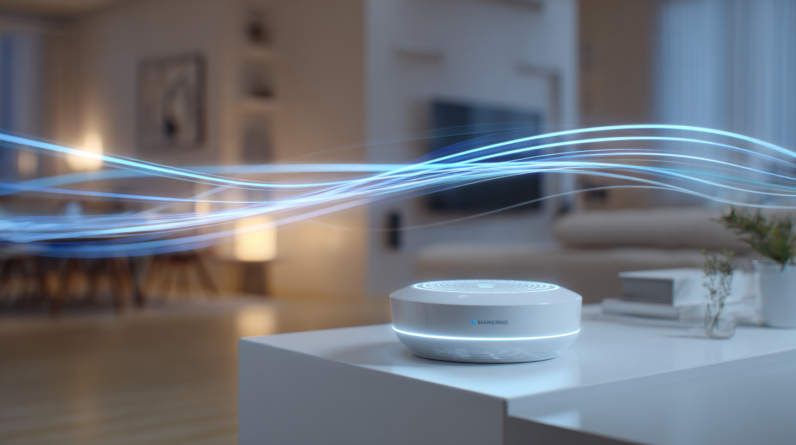
We’re surrounded by smart devices that collect vast amounts of our personal data, often knowing our habits and preferences better than we do. They gather data from our daily interactions, creating detailed profiles. It’s no surprise they know us so well, given the scope and volume of data they collect. As we explore this further, we’ll uncover more about how our devices gain such insight into our lives.
Major Data Collectors Among Smart Devices
As we explore into the world of smart devices, it’s clear that some devices are more aggressive than others when it comes to collecting our data. We’ve conducted a Device Comparison, analyzing data collection profiles of Amazon Alexa, Google Home, and Apple HomeKit. Our analysis highlights significant differences in Data Regulation practices. Amazon Alexa collects the most data, while Apple prioritizes end-to-end encryption and minimal data sharing. Google Home falls in between, with extensive data collection but enhanced security. We note these differences to inform our understanding of smart device data collection and the need for effective Data Regulation.
Excessive and Unnecessary Data Requests by Devices
While examining the data collection practices of smart devices, we’ve found that many devices request excessive permissions, often without a clear justification for doing so. This raises concerns about Data Ethics and the need for Device Regulation.
- Devices request access to precise location or audio recording capabilities
- Permissions often don’t align with main functionality
- Some devices seek phone audio recording permissions without justified need
- Regulatory bodies are preparing guidelines to address these excessive demands, highlighting the importance of responsible data handling.
Scope and Volume of Data Collected
We’re examining the vast scope of data collected by smart devices, and it’s clear that the volume of connected IoT devices is staggering – over 20 billion are projected globally by 2025, with some estimates reaching up to 27 billion. We’re generating vast amounts of data through these devices, which supports advanced data analytics. This enables the creation of detailed personal insights, allowing devices to know us better. With billions of devices online, the data collected is immense, driving innovation in various sectors and fueling further growth in the IoT ecosystem, where data analytics plays a vital role.
User Data Monitoring and Tracking in Mobile Apps
Mobile apps collect vast amounts of user data, and it’s our goal to understand how this data is monitored and tracked. We use Data Analysis to gain User Insights into behavior and preferences. Key aspects of monitoring and tracking include:
- Mobile analytics platforms
- Automatic capture tools
- Behavioral trend reports
- Path analysis. These tools enable us to collect and analyze user interaction data, providing actionable insights for developers and product teams. By leveraging these insights, we can optimize app performance and improve user experience through targeted enhancements and Data Analysis-driven decision-making.
Consumer Concerns Related to Smart Device Privacy
As we explore into the world of smart devices, it’s clear that concerns about privacy are a major barrier to adoption, with nearly 25% of potential buyers hesitating to purchase these devices due to data privacy fears. We recognize the need for increased privacy awareness and consumer education. Consumers are worried about data security, tracking, and lack of transparency on data sharing. We must address these concerns through education, promoting transparency and privacy-forward experiences to close the trust gap. By doing so, we can foster a better understanding of smart device privacy, ultimately driving adoption and informed decision-making.
Security Risks and Consumer Trust Issues
The surge in device vulnerabilities is affecting security, with our average device risk score rising by 33% globally in 2025 compared to 2024. We’re facing significant device security risks. Key concerns include:
- Unpatched firmware in IoT devices
- Vulnerable routers impacting network infrastructure
- Increasing cyber threats from unmanaged devices
- Escalating attacks on connected devices. These issues erode consumer trust, emphasizing the need for robust device security to counter cyber threats.
Data Collection and Privacy Implications
Having established the significant security risks associated with smart devices, we’re now faced with another pressing concern: the vast amount of data they collect about us. We must consider data ethics and Device regulation. Smart devices gather extensive data, including location, health, and behavioral information. This raises concerns about privacy and autonomy. As we explore into data collection and privacy implications, it’s clear that transparency and oversight are vital. Effective Device regulation can mitigate risks, ensuring that data collection aligns with ethical standards and user consent. By prioritizing data ethics, we can promote responsible innovation.
Conclusion
We’re surrendering our secrets to smart devices, weaving a digital tapestry that’s intricately woven with our deepest habits and desires. Like a mirror, they reflect our true selves, exposing vulnerabilities. As we stare into their screens, they stare back, collecting our data, and we’re left wondering: who’s holding the thread to this delicate fabric of trust?







